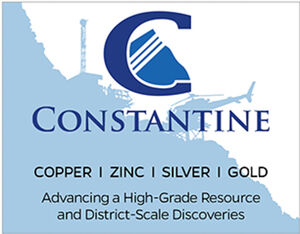America's regulatory system is broken
Until there is Congressional commitment to decentralize some key government functions, there will be dissention in the ranks North of 60 Mining News – March 3, 2023
Last updated 3/11/2023 at 8:32am

Adobe Stock
From America's earliest days, many argued for delegation of power to the states, while others argued for a strong, unified government that would reach to the periphery.
As America gravitates toward an increasingly strong central government, the disparity of the regulatory system is becoming increasingly blatant.
This is not the view of a few, it is the concern of the many.
Too often the problem is politicized. The left wants more government, the right wants less.
But this problem is not a political football. It is a national problem with an available solution.
Beginning in the earliest days of the nation, there was tension with regard to how much power the Executive Branch should have. Many argued for delegation of power to the states – a federal system. Others argued for a strong, unified government that would reach to the periphery. The upshot was a Constitution, loaded with restrictions on the executive branch – checks and balances – and ten amendments generally designed to protect the citizenry from the central government.
As insightful as our founders were in trying to strike a balance between the people and the government, they did not/could not envision the Administrative State that has ensued.
Alaska has always been the dog's tail. Even when it came to statehood, as magnanimous as the land grants to Alaska were, they left over two-thirds of the territory in the hands of the absentee landlord in the far-away District of Columbia; a place where the cultures and concerns were far removed from the realities of the (sometimes) frozen north.
Alaska is not alone in this predicament. Throughout the West there are innumerable issues beyond the comprehension of those who are delegated to address them.
Perhaps Ronald Reagan said it best when he said, "Government is not a solution to our problem; government is the problem." But even Joe Biden has acknowledged "We lost faith in whether our government and our democracy can deliver on really hard things for the American people."
In a recent editorial, Rich Nolan, president of the National Mining Association (NMA), said that "for all the momentum to rebuild and modernize our industrial base, a failure to address the nation's broken mine permitting process threatens to undercut the entire effort."
Switching out of the mining context for a moment, it is noteworthy that at least a few voices from the Alaska Native community have indicted the federal government for its cultural insensitivity in the context of land use, as well.
In a long and detailed diatribe addressed to the Fish and Wildlife Service and the Bureau of Land Management, leaders of the Native Village of Kaktovik have forcefully stated that "The Kaktovikmiut will NOT stand by while your agencies are complicit in the erasure our sovereignty, our traditional knowledge, and our ancestral claims to our own homelands and culture."
Likewise, the tribal councils of Allakaket and Huslia say they recognize the need to balance their traditional lifestyle and environmental protection with future economic opportunities and that they want their voices to be heard in a productive dialogue with the [Ambler] project proponents and federal agencies.
In brief, whether you are speaking of water rights in the West or land rights in the Arctic, the common thread is the same – the Administrative State, guided by the power base on the Potomac, is not servicing the people of the nation.
The importation of critical minerals from beyond our shores stands out like a sore thumb. According to NMA's Nolan, mineral demand is poised to grow between 500% and 1,000% in the coming decades. Within the next 30 years, the annual demand for copper alone is projected to reach a level equal to all the copper consumed in the world since 1900.
Unfortunately, if you squeeze your eyes really tight, you can almost see a metaphor between what is happening in Eastern Europe and what seems to be on our horizon. In essence, Russia really wants to hold the Crimean Peninsula in its little grip to protect itself against wicked enemies who are perceived as a threat. In its paranoia it destroys livelihoods and cultures by the use of mercenaries motivated by an autocrat who totally disregards the victims of their aggression.
Is Alaska America's Crimea? Is the Fish and Wildlife Service the Wagner group in disguise?
Of course not.
But the fact remains that the benefits of a strong central government must be leavened with a commitment to decentralization of authority.
It requires commitment and the dedication of our politicians to acknowledge first that there is a problem, and second that there is a non-political answer.
Everyone wants an environmentally sound source for critical minerals, just as everyone wants to protect the cultural values of our many diverse legatees.
It is time for the federal government to seriously rethink its priorities.















Reader Comments(1)
Eidolon writes:
The entire notion of a permit to perform activities that are already perfectly legal and lawful is ludicrous. With ownership of a mining claim comes the rights to extract locatable minerals. The act of lawful acquisition is an establishment or survival of those rights. IOW: we don't need no stinkin' permits to do something that we already have the right to do.
03/03/2023, 6:43 am